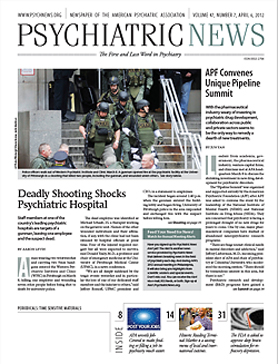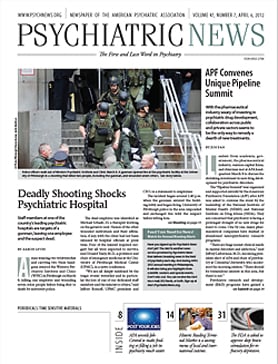The APA Board of Trustees, meeting in Arlington, Va., March 10 and 11, got an in-depth update on what the future of psychiatry might look like in a world where the rules are changing and the role of psychiatry will do so as well.
Paul Summergrad, M.D., chair of the Board’s Work Group on the Role of Psychiatry in Health Care Reform, emphasized that psychiatrists need to prepare for changes that are “inevitable and probably irrevocable.” Chief among these is that the fee-for-service model of medical care will become a niche market and will be replaced by several payment methodologies.
Accompanying the decline in fee-for-service medicine will be the rise of practice models such as “patient-centered” medical homes and accountable care organizations, said Summergrad, who is chair of the Department of Psychiaty at Tufts University School of Medicine and psychiatrist in chief at Tufts Medical Center. These changes are the result of market forces more than of the health care reform law’s mandates, he noted, and physicians should expect that “service-delivery protocols will demand performance metrics” assessing process and outcome.
The charge of the work group is to “develop pilot operational programs related to the patient-centered medical homes and the appropriate involvement of psychiatrists in this model.” Over the next few months, he said, the work group will be examining the role of psychiatrists in primary-care-led practices, which clinicians will care for the seriously mentally ill population, what political strategy APA should adopt to ensure that its voice is heard when policy decisions are made, and what is the best way to educate APA members about changing models of care.
For now, he stressed, “psychiatry’s roles and responsibilities within new models of care and with other primary medical practitioners are a moving target.” One thing that’s clear, he noted, is that a substantial evidence base supports clinical and potentially economic value for psychiatric integration into medical care settings.”
Change was certainly a theme of the recent Board meeting, as Trustees also heard an update from Mary Helen Davis, M.D., who chairs a work group that has been involved in clarifying maintenance of certification (MOC) issues. She has been updating the Board and Assembly at their meetings over the last year as the MOC-related changes became clearer.
She noted that the American Board of Psychiatry and Neurology will not be creating or selling MOC products, leaving that to other entities like APA and to commercial enterprises, which means psychiatrists and others will need to be alert to the potential for bias in the commercial products. She noted as well that starting in 2013, ABPN has said that the required fee for continuous MOC will be $175.
She pointed out that maintenance of licensure (MOL) requirements are also on the horizon and that 11 state medical boards have agreed to enter a pilot project in this area, but with state budgets so strained, the groundswell in the states for MOL requirements has abated for the time being.
The Board voted to establish a caucus on MOC issues under the Council on Medical Education and Lifelong Learning.

A summary of Board actions will be posted in the Members Corner of APA's Web site, www.psych.org, under Association Governance. 


